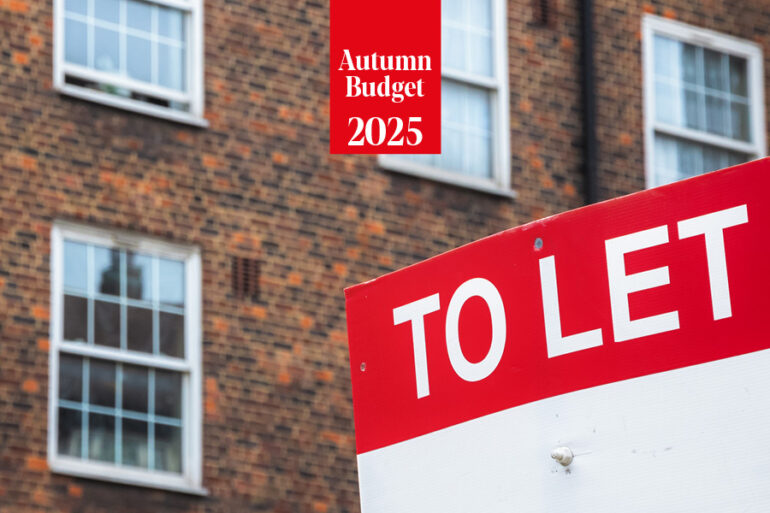The Office for Budget Responsibility (OBR) has confirmed that income tax on property income will rise by 2% from April 2027 – a decision that has triggered immediate warnings that rents will increase as a result.
Under the changes, the basic, higher and additional rates applied to property income will rise to 22%, 42% and 47% respectively.
The measure, announced in today’s Budget, represents one of the most significant tax increases for landlords in recent years.
With the rental market already stretched, industry experts have warned that today’s Budget could deepen supply shortages and worsen affordability for millions of renters unless the government pairs tax increases with meaningful measures to boost the number of available homes.
Ben Beadle, chief executive of the National Residential Landlords Association (NRLA), criticised the move, arguing that the government has chosen a path that will directly increase costs for tenants.
He said: “Despite claims of tackling cost of living pressures, the Government is pursuing a policy that the Office Budget Responsibility has made clear will drive up rents.
“Almost one million new homes to rent are needed by 2031. But this Budget will clobber tenants with higher costs while doing nothing to improve access to the homes people need.”
Industry figures warn that the tax hike will intensify pressure on already-strained rental supply. Years of rising mortgage costs, tighter regulation, and existing tax reforms have led many landlords to exit the sector.
“With fewer homes available to rent, tenant competition is driving rents to record levels across the UK.
Jonathan Stinton, head of mortgage relations at Coventry Building Society, echoed these concerns: “Hiking property income tax won’t just hit landlords – it will hit renters in the pocket too.
“When the cost of being a landlord rises, those pressures almost always find their way into monthly rents – meaning those who don’t own a home pay the price.
“A similar rise to tax on dividends means the cost will also go up for landlords who hold their property in a limited company. The more landlords are taxed the less appealing it is to let a property – which could lead to fewer landlords and reduced choice for renters.”
Stinton added that first-time buyers could be among the hardest hit, as rising rents make it even more difficult to save for a deposit.
He said: “First time buyers who are trying to save a deposit while renting could especially struggle and worry that their homeownership dreams are pushed even further out of sight.”




